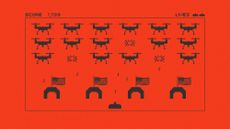The jobless recovery has begun
The financial crisis that gathered force from the summer of 2007 through the summer of 2008 and then exploded after the collapse of Lehman Brothers last fall did more damage to the economy than most forecasters had imagined. Last December, economists forecast 2009 unemployment at 7.8 percent. As of this writing, it seems likely to be 9.3 percent or higher—at least 1.5 percentage points higher than originally estimated. Year-2009 real GDP also looks to be lower than predicted—coming in at $11.4 trillion rather than the $11.53 trillion forecast by the Obama administration. Even without the downward revision of GDP, however, the next stretch of road bears all the marks of a jobless recovery.
Back in the 1960s one of President Johnson's economic advisors, Brookings Institution economist Arthur Okun, established a rule of thumb quickly named "Okun's Law." Here is the gist: if GDP (production and incomes, that is) rises or falls two percent due to the business cycle, the unemployment rate will rise or fall by one percent. The magnitude of swings in unemployment will always be half or nearly half the magnitude of swings in GDP.
Why?
Subscribe to The Week
Escape your echo chamber. Get the facts behind the news, plus analysis from multiple perspectives.

Sign up for The Week's Free Newsletters
From our morning news briefing to a weekly Good News Newsletter, get the best of The Week delivered directly to your inbox.
From our morning news briefing to a weekly Good News Newsletter, get the best of The Week delivered directly to your inbox.
Four reasons: (a) businesses will tend to "hoard labor" in recessions, keeping useful workers around and on the payroll even when there is temporarily nothing for them to do; (b) businesses will cut back hours when unemployment rises, reducing output more than proportionately because total hours worked will fall by more than total bodies employed; (c) plant and equipment will run less efficiently when hours are artificially shortened; and (d) some workers who lose their jobs won't show up in the unemployment statistics, choosing instead to retire or drop out of the labor force.
For all four of these reasons, the rise in the unemployment rate during a recession should be a fraction of the decline we see in GDP relative to trend. According to Okun's Law, the unexpected extra 1.2 percent decline in real GDP in 2009 should have been accompanied by a 0.5 or 0.6 percentage-point rise in the unemployment rate. Instead, we experienced a 1.5 percentage point rise in the unemployment rate. I confess this comes as a surprise to me, but it shouldn't. Because evidence has been mounting that Okun's Law is broken—especially with regard to the retention of workers in a downturn.
In 1993—two full years after the National Bureau of Economic Research said that the 1990–1991 recession had ended—the unemployment rate was still higher, and the employment-to-population ratio lower, than it had been at the recession's trough. We saw this same kind of "jobless recovery" after the recession of 2001. It wasn't until 55 months after that recession ended that a greater share of Americans were working than had been working before the contraction.
Now in 2009, we are poised once again for economic recovery. But as the old Texas Ranger George W. Bush liked to say: "Fool me once, shame on you. Fool me twice—we won't get fooled again!"
Sign up for Today's Best Articles in your inbox
A free daily email with the biggest news stories of the day – and the best features from TheWeek.com
So get ready for another jobless recovery.
The question is, why the shift? Why is a jobless recovery likely now, and why have there been jobless recoveries for the past two decades?
Paul Krugman has a theory: "[Past] recessions . . . were very different. . . . Each of the slumps—1969–70, 1973–75, and the double-dip slump from 1979 to 1982—were caused, basically, by high interest rates imposed by the Fed to control inflation. In each case housing tanked, then bounced back when interest rates were allowed to fall again. Since the mid 1980s, however . . . recessions haven't been deliberately engineered by the Fed, they just happen when credit bubbles or other things get out of hand. . . . [T]hey've proved hard to end . . . precisely because housing—which is the main thing that responds to monetary policy—has to rise above normal levels rather than recover from an interest-imposed slump."
I'm guessing there is another set of factors at work. Manufacturing firms used to think that their most important asset was skilled workers. Hence they hung onto them, "hoarding labor" in recessions. And they especially did not want to let go of their prime productive asset when the recovery began. Skilled workers were the franchise. Now, by contrast, it looks as though firms think that their workers are much more disposable—that it's their brands or their machines or their procedures and organizations that are key assets. They still want to keep their workers happy in general, they just don't care as much about these particular workers.
The hypothesis is that firms believe that their remaining workers will forgive them if they fire large numbers of workers during a recession out of economic necessity, but not at other times. Hence the start of the recovery is a business' last moment to slim down its labor force and become more efficient and profitable in the coming boom.
At least it is likely to be a recovery. The prevailing forecast right now is for real GDP to contract at a rate of one percent per year or less between the first and second quarters of 2009, followed by growth between the second and third quarters at an annual rate of two percent or so. When the NBER Business Cycle Dating Committee gets around to it, it is most likely to call the end of this recession for June 2009, with the second most likely call for April and a date sometime after June 2009 as a less likely possibility.
Yes, that would mean the recession is over right now. One reason for that is the much-maligned stimulus package, which probably boosted the real GDP annual growth rate by about one percentage point in the second quarter of 2009, and will boost it by another two percentage points between now and the summer of 2010. (After that, its effects will not only tail off, but actually exert a drag on subsequent GDP growth, which is why White House Council of Economic Advisors Chair Christina Romer has been warning of the dangers of pulling the plug on economic stimulus too soon.)
Politically, the question "did the stimulus work?" might well be answered in the affirmative. Democratic members of Congress seeking reelection in 2010 will be able to point to real GDP growth and an official end to the recession in the second quarter of 2009. However, that is probably not the most relevant question to ask.
Comparing the second quarter of this year to the first, work-hours have declined at a rate of six percent annually. Unless new unemployment claims fall precipitously, work-hours from the second to third quarter will decline at a rate of about three percent per year. Productivity is growing not because of new investment in technology but because businesses continue to fire what workers they can, knowing that in so lousy an economy they won't be blamed for it.
Barring much faster real GDP growth than is currently in the cards, we appear destined for another jobless recovery. So the answer to the question "did the stimulus work?" depends on the metric you use. If the metric is the unemployment rate, the answer is very likely to be: No. Why? Because it was too small.
Create an account with the same email registered to your subscription to unlock access.
Brad DeLong is a professor in the Department of Economics at U.C. Berkeley; chair of its Political Economy major; a research associate at the National Bureau of Economic Research; and from 1993 to 1995 he worked for the U.S. Treasury as a deputy assistant secretary for economic policy. He has written on, among other topics, the evolution and functioning of the U.S. and other nations' stock markets, the course and determinants of long-run economic growth, the making of economic policy, the changing nature of the American business cycle, and the history of economic thought.
-
 Is the next cold war a drone-swarm race between US and China?
Is the next cold war a drone-swarm race between US and China?Today's Big Question Both global superpowers are building up their capacity for surging robotic warfare. What happens next is anyone's guess.
By Rafi Schwartz, The Week US Published
-
 Crossword: April 17, 2024
Crossword: April 17, 2024The Week's daily crossword
By The Week Staff Published
-
 Sudoku hard: April 17, 2024
Sudoku hard: April 17, 2024The Week's daily hard sudoku puzzle
By The Week Staff Published
-
Issue of the week: Yahoo’s ban on working from home
feature There’s a “painful irony” in Yahoo’s decision to make all its employees come to the office to work.
By The Week Staff Last updated
-
Issue of the week: Another big airline merger
feature The merger of American Airlines and US Airways will be the fourth between major U.S. airlines in five years.
By The Week Staff Last updated
-
Issue of the week: Feds’ fraud suit against S&P
feature The Justice Department charged S&P with defrauding investors by issuing mortgage security ratings it knew to be misleading.
By The Week Staff Last updated
-
Issue of the week: Why investors are worried about Apple
feature Some investors worry that the company lacks the “passion and innovation that made it so extraordinary for so long.”
By The Week Staff Last updated
-
Issue of the week: Does Google play fair?
feature The Federal Trade Commission cleared Google of accusations that it skews search results to its favor.
By The Week Staff Last updated
-
Issue of the week: The Fed targets unemployment
feature By making public its desire to lower unemployment, the Fed hopes to inspire investors “to behave in ways that help bring that about.”
By The Week Staff Last updated
-
Issue of the week: Is Apple coming home?
feature Apple's CEO said the company would spend $100 million next year to produce a Mac model in the U.S.
By The Week Staff Last updated
-
Issue of the week: Gunning for a hedge fund mogul
feature The feds are finally closing in on legendary hedge fund boss Steven Cohen.
By The Week Staff Last updated